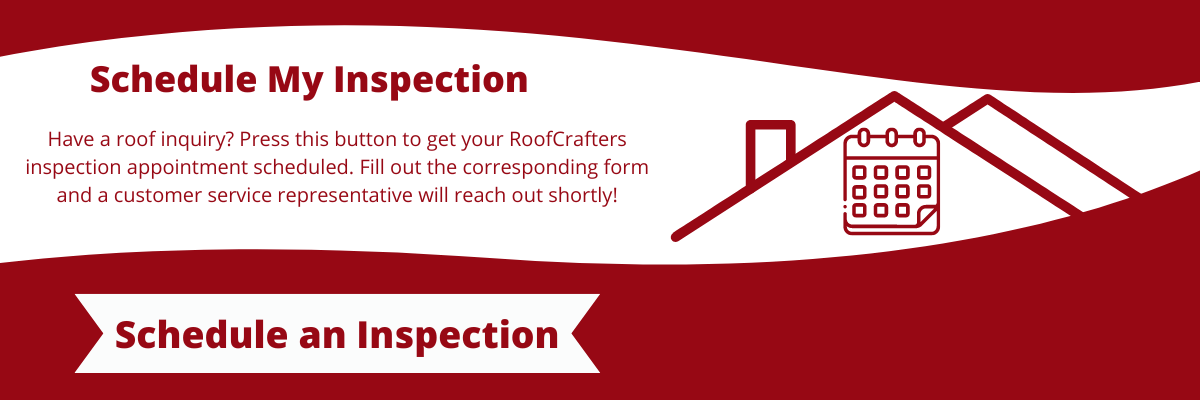Roof Inspection vs. 4-Point Inspection
September , 2023 | 6 min. read

Imagine your home as a movie, and the star of the show is undoubtedly your roof. Duh. But when it comes to home inspections, it's not a one-man show; it's a battle of the protagonists. On one side, you have the 'Roof Inspection,' a specialist in the art of protecting your home from the elements, like a hero dedicated solely to safeguarding your humble abode. On the other, you've got the '4-Point Inspection,' the ultimate ensemble cast, examining your home's essential systems like a well-coordinated team of detectives.
It’s hurricane season, y’all, I’ve been watching a lot of movies! Witty cinema talk aside, RoofCrafters has been in the roofing biz for over 3 decades, and we’ve performed more roofing inspections and 4-point inspections than we can count. While both contenders are top-tier in preventative care and deciphering weak points plus potential repairs, they have separate purposes.
That being said, if you’re reading this article, you’re either really bored, or you’re interested in learning about the key differences between roof inspections and 4-point inspections. Either way, you’re in luck! In just a few short moments, you’ll learn the definitions of the two procedures, their purposes and how they compare, and which service may be right for your home. Let’s get started, shall we?
What is a Roof Inspection?
A roof inspection is a comprehensive examination of a building's roofing system, typically conducted by a qualified roofing professional or inspector. The primary purpose of a roof inspection is to assess the condition and integrity of the roof to ensure it is performing its essential functions effectively. During a roof inspection, various aspects of the roof are carefully examined, including the roofing materials, structural components, flashing, gutters, and drainage systems.
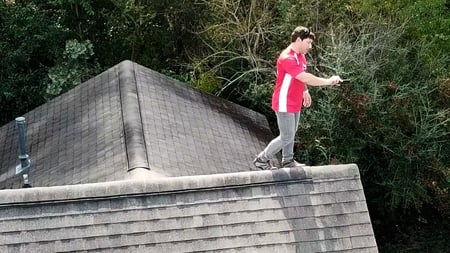
The inspector looks for signs of damage, wear and tear, leaks, and potential issues that could compromise the roof's ability to protect the building from the elements. This includes inspecting for loose or missing shingles or tiles, cracks in flat roofing materials, damaged flashing around chimneys and vents, and any areas where water may be pooling. They also check for signs of moss or algae growth, which can indicate excess moisture and potential roof deterioration.
Roof inspections are essential for identifying problems early on, preventing costly repairs or replacements, and extending the lifespan of the roof. Regular inspections, typically recommended on an annual basis, are particularly crucial in regions with extreme weather conditions or where roofs are prone to damage from factors like hail, heavy snow, or strong winds. Additionally, many insurance policies and warranties require periodic roof inspections to remain valid.
What is a 4-Point Inspection?
A 4-point roofing inspection is, you guessed it, a thorough examination of the 4 key components of a residential roof to assess its overall condition. This inspection typically focuses on four critical areas:
Roofing Materials: The inspector will evaluate the type and condition of the roofing materials, such as shingles, tiles, or metal panels. They will check for signs of wear and tear, damage, or missing pieces. It's important to ensure that the roofing materials are in good shape to prevent leaks and water infiltration.
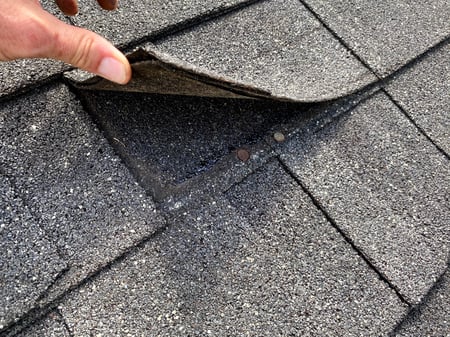
Flashing and Ventilation: The inspection will include a close examination of roof flashing, which seals vulnerable areas like roof edges, chimneys, and vents. Proper flashing is essential to prevent water penetration. Additionally, the inspector will assess the roof's ventilation system to ensure that it's functioning correctly. Adequate ventilation helps regulate temperature and moisture levels in the attic, preventing issues like mold and rot.
Structural Integrity: The inspector will inspect the roof's structural components, such as the trusses or rafters, to check for any signs of sagging, damage, or structural issues. A structurally sound roof is essential for overall home stability and safety.
Gutters and Drainage: The final aspect of the inspection focuses on the gutter system and drainage. The inspector will examine the condition of the gutters and downspouts, ensuring they are clear of debris and properly attached to the roof. Adequate drainage is vital to channel rainwater away from the house, preventing water damage to the foundation and basement.
After conducting a 4-point roofing inspection, the inspector will provide a detailed report outlining their findings, including any recommended repairs or maintenance. This information is valuable for homeowners, helping them identify potential issues early on and take proactive measures to protect their roofs and homes. Regular roofing inspections are essential for extending the lifespan of the roof and maintaining the integrity of the entire structure.
Roof Inspection vs. 4-Point Inspection
A roof inspection and a 4-point inspection are two different types of assessments, each with its own focus and purpose:
Roof Inspection
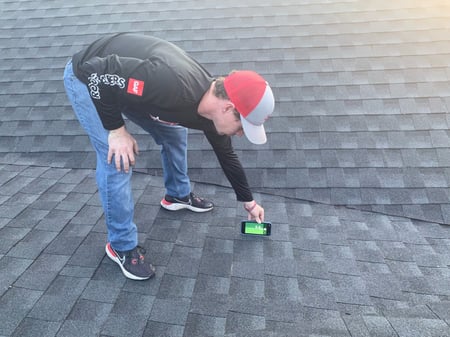
Focus: A roof inspection is a comprehensive evaluation of the entire roofing system, focusing specifically on the condition of the roof's components, including the roofing material (shingles, tiles, etc.), underlayment, flashing, and the overall structural integrity.
Purpose: The primary purpose of a roof inspection is to assess the overall condition of the roof, identify any damage or issues, and provide recommendations for repairs or maintenance. It is often conducted by roofing professionals or inspectors to determine the roof's health and lifespan.
Components Checked: In a roof inspection, all aspects of the roof are examined, including the roofing material, flashing, vents, gutters, downspouts, and the roof's structural components. The inspector may also look for signs of water damage or leaks.
4-Point Inspection
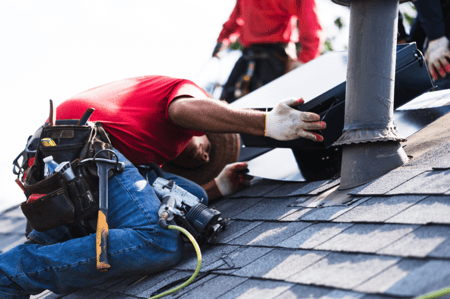
Focus: A 4-point inspection, on the other hand, is a more specific assessment typically required by insurance companies. It focuses on four key areas of a home: the roof, electrical system, plumbing system, and HVAC (heating, ventilation, and air conditioning) system.
Purpose: The primary purpose of a 4-point inspection is to assess the condition and safety of these four critical systems to help insurance companies determine the risk associated with insuring the property. It is often required for older homes or as part of the insurance underwriting process.
Components Checked: In a 4-point inspection, the inspector evaluates the condition and age of the roof, but it's just one component of a broader assessment that also includes the electrical, plumbing, and HVAC systems. The inspection focuses on identifying potential hazards or deficiencies that might impact the property's insurability.
Roof Inspection or 4-Point Inspection: Which Should I Choose?
The choice between a roof inspection and a 4-point inspection depends on your specific needs and circumstances. If you are primarily concerned about the condition of your roof and want a comprehensive assessment of its health, a dedicated roof inspection conducted by a roofing professional is the better choice. This option is ideal when you're planning to sell your home, have experienced recent severe weather, or want to ensure the longevity of your roof.
On the other hand, if you are seeking insurance coverage for your home, particularly for an older property, or are in the process of buying a home, a 4-point inspection may be necessary to satisfy insurance requirements. It provides a broader assessment of key systems, including the roof, electrical, plumbing, and HVAC, to help insurance companies evaluate the overall safety and insurability of the property.
Ultimately, the decision between the two types of inspections should be based on your specific goals. If in doubt, consulting with a qualified inspector or your insurance provider can help you determine which inspection type is most appropriate for your situation. In some cases, you may even need both inspections to ensure a comprehensive evaluation of your home. If you’re interested in learning more about which type of inspection would be best suited for your home, be sure to hit the “Schedule an Inspection” button down below, and one of our experts will help guide you in the right direction!
My name is Cassie, and I’m the Content Manager here at RoofCrafters. I was born and raised in Chicago, Illinois, and made my way out to Florida post-college graduation. I’m incredibly passionate about writing and creating valuable content that helps others with the collaboration of my marketing team. When I’m not working, I enjoy shopping (a little too much), spending time at the beach, and reading!



